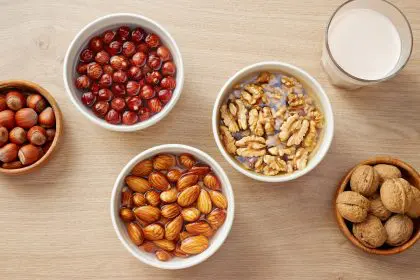Urinary tract infections (UTIs) affect millions of people annually, causing discomfort and disrupting daily life. While proper medical care remains essential for treating established infections, certain foods may help prevent recurrences or support recovery. Tart fruits, in particular, contain compounds that create an inhospitable environment for the bacteria most commonly responsible for these infections. Research indicates that three specific tart fruits stand out for their potential benefits in maintaining urinary tract health and possibly reducing infection risk.
Cranberries and their unique properties
Cranberries have earned their reputation as a go-to natural remedy for urinary health through decades of both traditional use and scientific investigation. These bright red berries contain a group of compounds called proanthocyanidins (PACs) with a unique molecular structure that provides anti-adhesion properties. This means they can prevent bacteria—particularly Escherichia coli, responsible for approximately 85% of urinary tract infections—from attaching to the urinary tract lining.
The anti-adhesion mechanism works by inhibiting the tiny hair-like projections (fimbriae) that bacteria use to grip surfaces. When bacteria cannot adhere to the urinary tract walls, they get flushed out during urination instead of establishing an infection. Research indicates that this effect requires consistent intake rather than occasional consumption.
Fresh cranberries offer the highest concentration of beneficial compounds, but their extreme tartness makes them challenging to consume without added sweeteners. Unsweetened cranberry juice provides a more palatable option, though it remains quite tart. For those seeking the benefits without the pucker, unsweetened cranberry juice concentrate or cranberry supplements formulated specifically for urinary health offer alternatives. When selecting cranberry products, check labels carefully, as many commercial cranberry juices and cocktails contain minimal actual cranberry content and excessive added sugars, which may counteract the benefits.
Lemons and the power of citric acid
Lemons deliver a powerful combination of vitamin C and citric acid, both of which support urinary tract health through different mechanisms. The high concentration of citric acid in lemons helps increase urine acidity, creating an environment less favorable for bacterial growth. Additionally, the citric acid may help prevent certain types of kidney stones, which can sometimes increase susceptibility to urinary infections by causing urinary stasis or obstruction.
The vitamin C content in lemons performs a dual function—it not only supports immune function but may also acidify urine, further hindering bacterial proliferation. Starting each morning with warm water containing freshly squeezed lemon juice introduces these beneficial compounds early in the day. For ongoing support, adding lemon slices to water throughout the day maintains a steady intake of citric acid and vitamin C.
Lemon’s versatility extends beyond beverages. This tart fruit adds flavor to salad dressings, marinades, and numerous dishes without adding calories or sodium. For those who find pure lemon juice too acidic, dilution with water reduces the tartness while maintaining the beneficial properties. While lemons alone cannot treat an active infection, their regular consumption may complement other preventive measures for urinary health maintenance.
Pineapple and its enzyme advantage
Pineapple offers a more tropical approach to urinary tract health support through its exceptional enzyme content and anti-inflammatory properties. This fruit contains bromelain, a mixture of enzymes with documented anti-inflammatory and potentially antibacterial effects. While bromelain primarily benefits the digestive system, its systemic anti-inflammatory properties may help reduce inflammation associated with urinary tract irritation.
The fruit also delivers significant vitamin C, which supports immune function and contributes to urine acidification. The combination of bromelain and vitamin C creates a dual-action approach to urinary health—reducing inflammation while creating less hospitable conditions for bacterial growth. Fresh pineapple contains the highest levels of active bromelain, primarily concentrated in the core and stem areas often discarded during preparation.
For maximum benefit, consume fresh pineapple rather than canned varieties, which undergo processing that diminishes bromelain activity. Incorporating fresh pineapple into smoothies, fruit salads, or as a standalone snack provides a delicious way to support urinary health. The natural sweetness of pineapple makes it more palatable than other tart fruits while still delivering urinary health benefits, making it an excellent option for those who find cranberries and lemons challenging to consume regularly.
These three tart fruits—cranberries, lemons, and pineapples—each contribute unique compounds that may help maintain urinary tract health and potentially reduce infection risk. However, it’s important to note that they function primarily as preventive measures rather than treatments for active infections. A comprehensive approach to urinary health includes adequate hydration, proper hygiene practices, and appropriate medical care when symptoms arise.
For individuals with recurrent urinary tract infections, incorporating these fruits into a regular dietary routine may provide additional support alongside medical recommendations. The natural compounds in these fruits work best with consistent, long-term consumption rather than as occasional remedies. Those with specific health conditions, particularly diabetes or kidney disease, should consult healthcare providers before significantly increasing intake of these fruits, as their natural sugar content and acidity may impact other health parameters.
Research into natural approaches to urinary health continues to evolve, with these tart fruits remaining at the forefront of both traditional wisdom and scientific investigation. Their combination of anti-adhesion properties, acidifying effects, and anti-inflammatory compounds creates a multi-faceted approach to maintaining urinary tract health naturally through everyday dietary choices.













